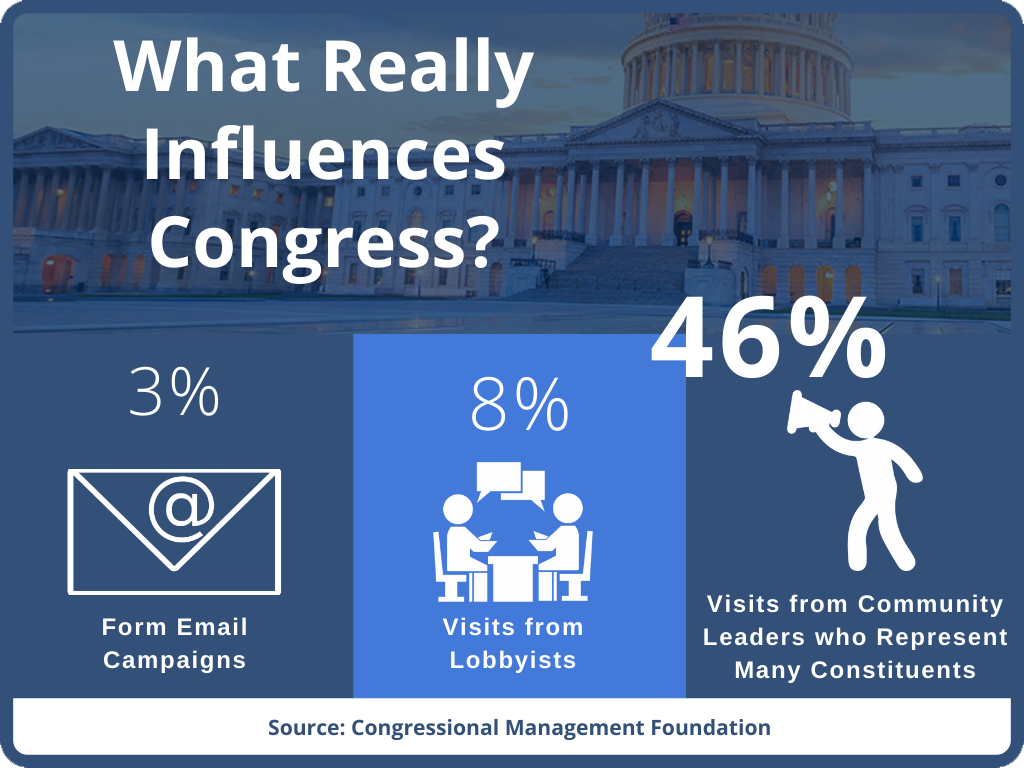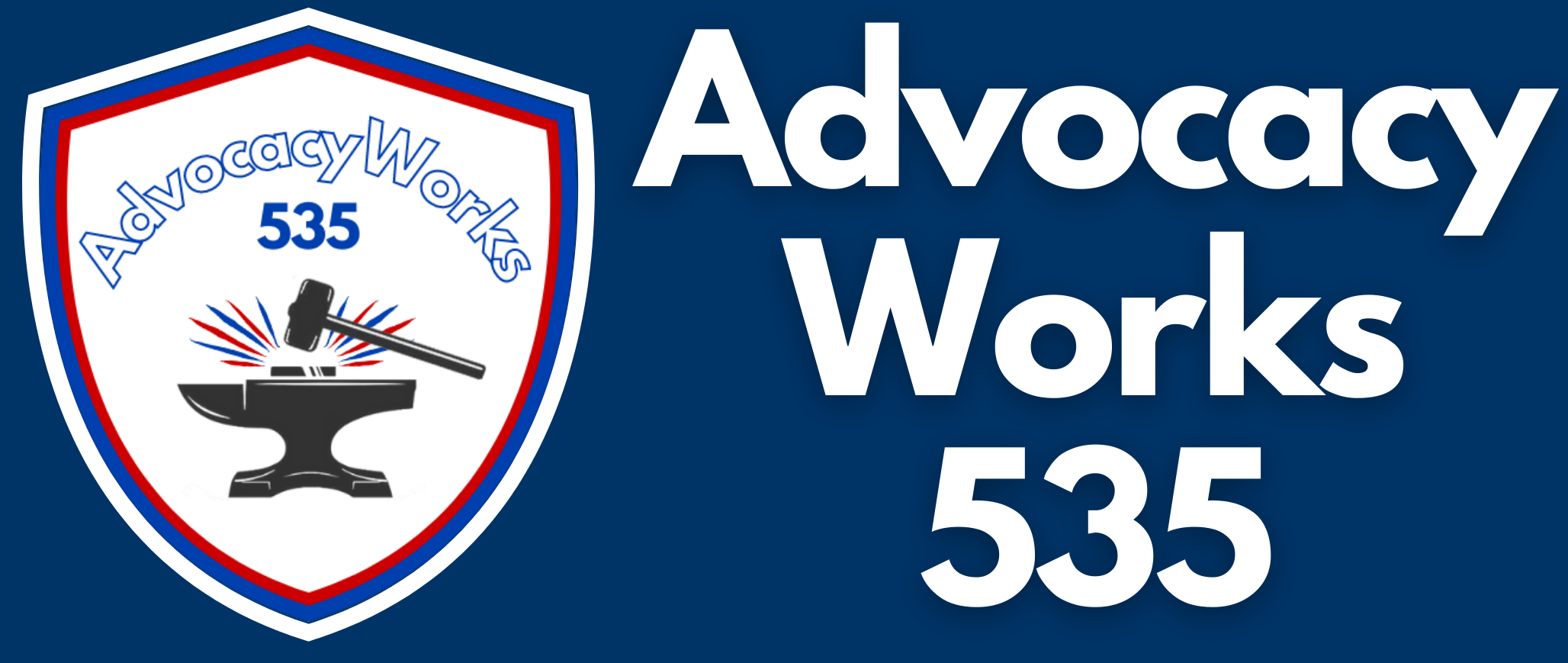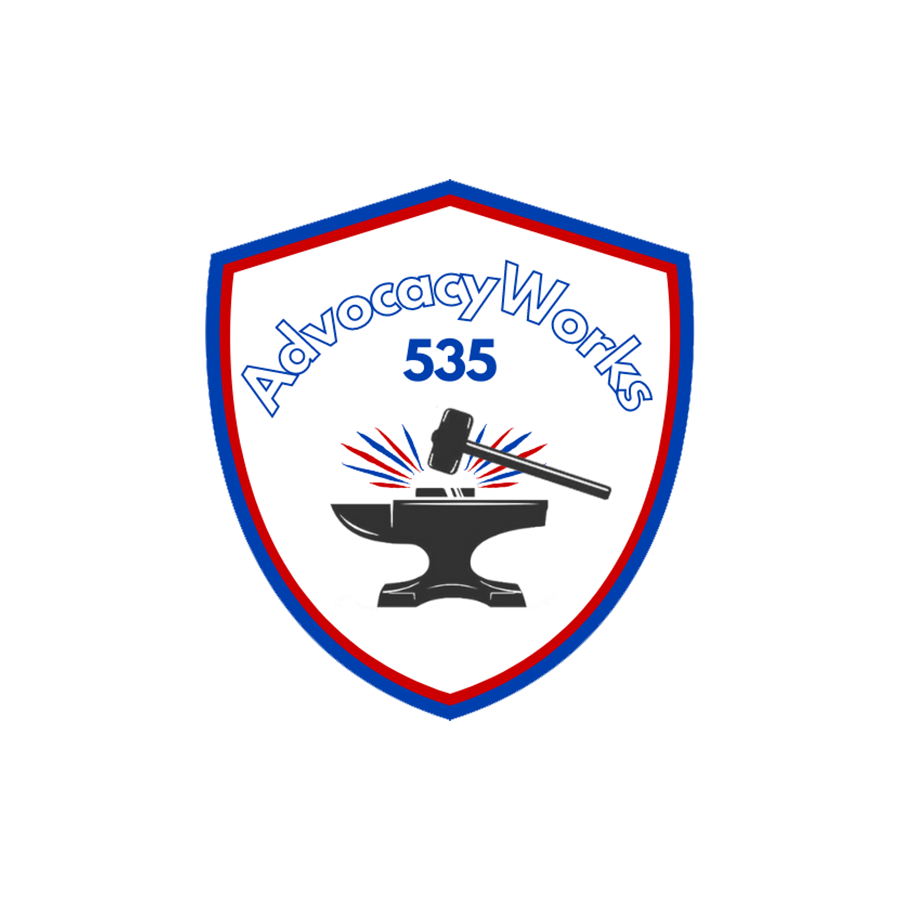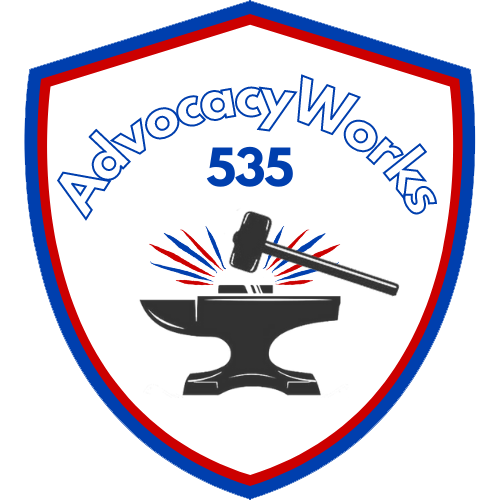What We Do
AdvocacyWorks 535 helps its clients to FORGE their newly-minted “slactivists” into engaged and influential advocates.
Why We Do It
Research conducted by the Congressional Management Foundation proves that "grasstops" advocates (i.e. community leaders, business owners, employers, nonprofit leaders, etc. that have strong relationships with policymakers) have more influence than thousands of supporters spamming their elected officials. Unfortunately, most advocacy organizations find that it's incredibly difficult to grow their grasstops networks much larger than their initial small group of already engaged and skilled grasstops advocates.
Common challenges that prevent most advocacy associatons from forging robust grasstops advocacy networks are as follows.
Common challenges that prevent most advocacy associatons from forging robust grasstops advocacy networks are as follows.

A lot of influence
LACK OF SKILLS
Although the majority of advocacy associations have data systems capable of storing information about their direct and indirect advocacy activities, most government relations professionals have minimal experience or interest in working with databases.
LACK OF RESOURCES
The average advocacy association has no more than one full-time employee dedicated to its grassroots organizing efforts, and more than 9 out of 10 advocacy professionals indicate that they lack the staff, tools and resources needed to achieve their goals and objectives.
CONFLICTING PRIORITIEIS
Many grassroots advocacy professionals have difficulty getting other staff and departments to prioritize their grassroots advocacy programs’ needs. Furthermore, many advocacy professionals engage in both direct and indirect advocacy and cover multiple issues.
DATA GAPS
Advocacy associations commonly facilitate and measure form emails directed to Congress or meetings conducted during their "fly-in" events. Yet many organic advocacy activities are important mid-point indicators of entry-level advocates taking steps in the direction of becoming a grasstops ambassador. Unfortunately, constituent advocates rarely report their activities to their professional advocates. As a result, many promising advocates aren't encouraged to develop into grasstops advocates.
Fragmented Data
Advocacy groups commonly use multiple databases for different purposes. (E.g. membership relations, fundraising, and communications.) Although technology is available to synch information shared by these systems, many groups do not integrate their various information systems or internally share information between departments.
Services We Provide
AdvocacyWorks 535 addresses the challenges outlined above by providing its clients the following services.
CASE STUDIES
AdvocacyWorks 535 studies how associations, nonprofits, and companies use technology to track new advocates’ advocacy advancement. Clients can adapt these models to fit their organizational structure, culture, leadership priorities and other important aspects.
CONSULTING & COACHING
AdvocacyWorks 535 works with advocacy organizations to assess their advocacy programs’ and identify metrics-driven strategies to increase their advocates’ influence and power. Once implemented, AdvocacyWorks 535 conducts ongoing meetings with clients to improve the likelihood that clients learn to embrace new practices and approaches.
DATA CLEANUP & INTEGRATION
AdvocacyWorks 535 assist with efforts to compile and merge its client’s advocacy data from multiple sources.
IMPLEMENTATION SERVICES
AdvocacyWorks 535 provides its clients customized documents to outline their decisions about how they will tag their advocates’ advocacy activities. Based on these protocols, customized reports can be created for clients to monitor their network’s actions and identify advocates who have taken recent actions to merit individual outreach.
FULL-SERVICE ADVOCACY STAFFING
AdvocacyWorks 535 implements and maintains grassroots advocacy programs for clients. This involves developing plans to build clients’ grasstops advocacy networks, launching advocacy campaigns, logging, and tracking activities and advocates’ development, developing appropriate metrics, conducting outreach to new or improving advocates, and training advocates to be more effective.


